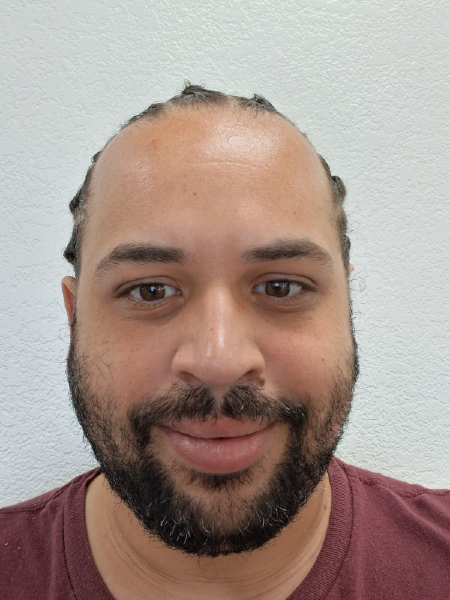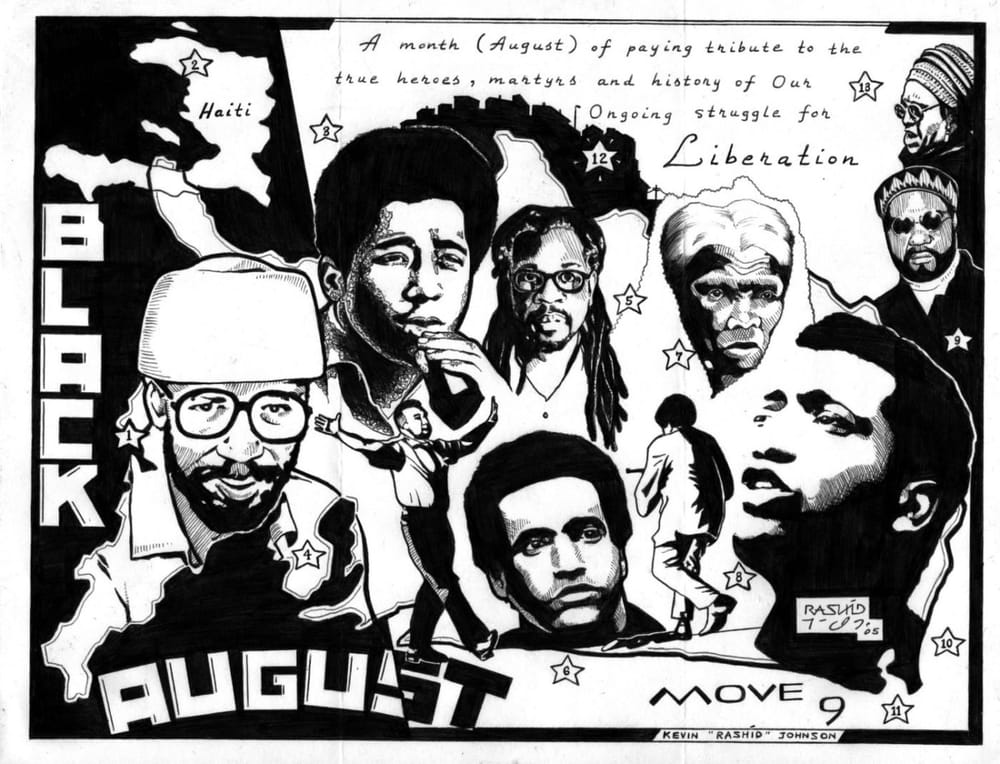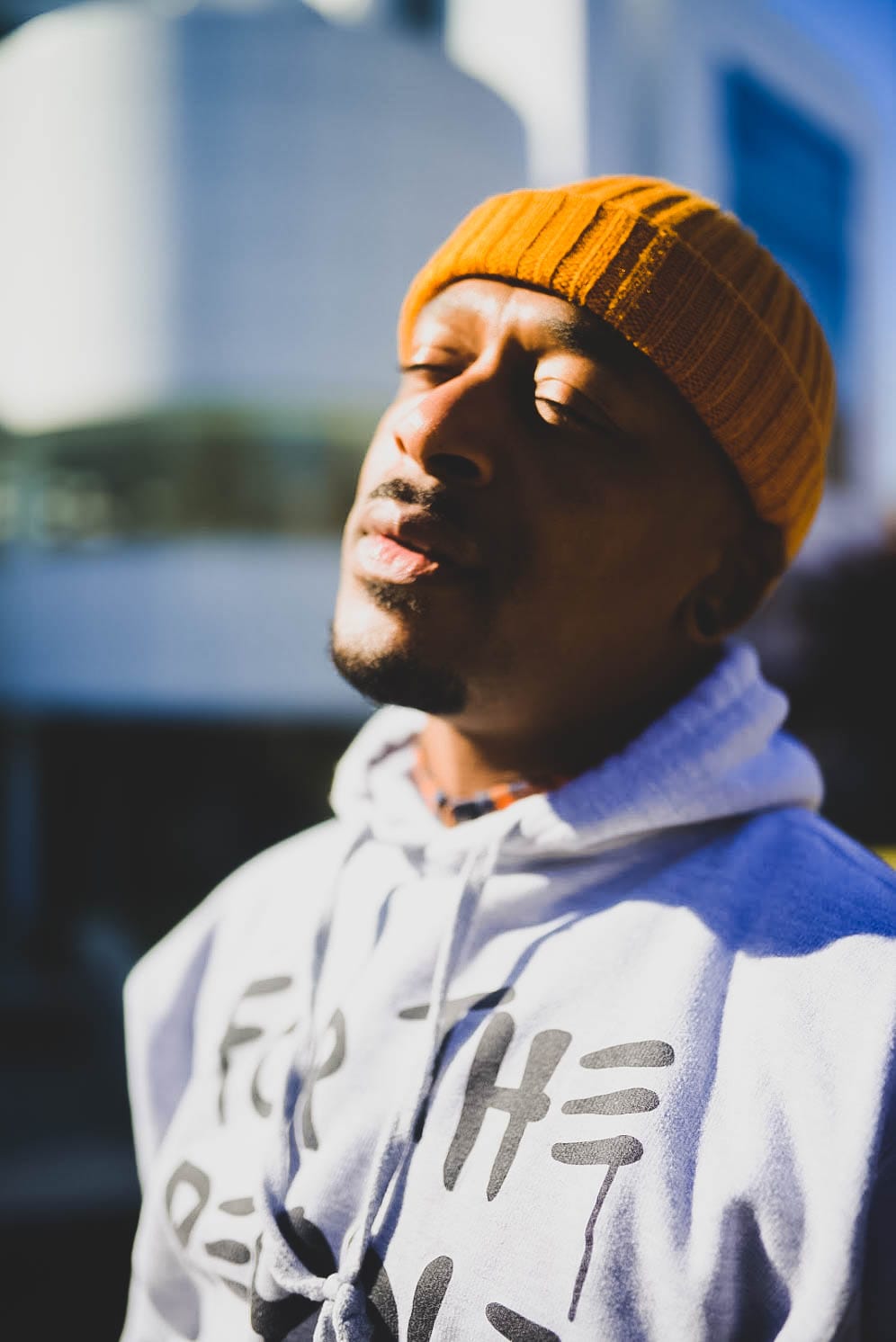The first 24-hour fast had me beat. Today is a Flea Day–a day that commemorates the killings of Khatari Gaulden, W.L. Nolen, George and Jonathan Jackson, and other political prisoners. I started at 6 a.m., making for a lightheaded, drowsy workday. In this condition, I grew frustrated at completing the other Black August activities. At that point, I realized that I have to be more honest with myself about what I can commit to. Slumped on my father’s couch, I called it quits at 8 p.m.

Black August is a month-long commemoration of the deaths and struggles of our people who have been imprisoned for their political beliefs and the overall resistance to racism and white supremacy. To me, it is a time to remember our ancestors and freedom-fighters, and to destroy myths of Black passivity. It is a reorientation of values beyond survival and comfort. It’s to remember the highest respect for ourselves as Black people. Black History Month focuses on our past, but Black August focuses on our fight and struggle.
To honor our freedom fighters and political prisoners during Black August, I committed to its principles: fast, train, study, and fight!
In this, my third Black August, I planned to fast from soda, gas station food, fast food, and entertainment media and to fulfill a complete fast for 24 hours on the Flea Days. I planned to read George Jackson’s Blood in My Eye and increase my overall study time, execute an exercise regimen, work on my writing craft daily, look into more struggles of political prisoners, and conclude the month with a Unity Feast with friends at a Black-owned restaurant on the last day.
Some of my friends vaguely know of Black August, but I’m the only one of us who observes it. A friend derided me for fasting.
“Why would they [political prisoners/freedom fighters] want us to suffer?”
But it’s not about suffering, it’s about honoring their sacrifices with my own. Fasting builds us up, as always seeking relief makes us impulsive and degenerate, having no standards for goals and behavior. It could be considered spiritual solidarity.
For Black August, fasting is a way to honor the hunger strikes during the original Black August. I came to hear of Black August on Dr. Jared Ball’s I Mix What I Like! YouTube channel. I learned that it originated in the California prison system in 1979. Black August reorients the individual to the idea of producing justice for ourselves. Often, we optimize our lives for survival or pleasure. Optimizing our time and energy for justice builds the individual physically and mentally. This year, I aim for reorientation with counter-racist action and thinking to continue into the next twelve months.
Studying the works of our ancestors is important to me. People talk about valuing our ancestors, but seldom do we read their words and take time to understand them. Our ancestors’ struggles become a type of shallow theater, where events and figures are only seen on a surface level, and as a result, aren’t fully understood. Reading George Jackson, Assata Shakur, Mumia Abu-Jamal, and others, in their own words, I’m amazed at their perseverance, commitment, and determination. Ideally, I would want more balance in my life, but a part of me wants to live up to their sacrifices.
I, like many, have a political double day. During the day, I help kids with autism. It is purposeful and rewarding, but it is also exhausting. After I commute home from work, I have more work to do in my community. I struggle to meet my needs and develop my consciousness, let alone shape others. I’ve realized the importance of tailoring my resistance to what I can do consistently and have the capacity for, and Black August is a ritual that guides me back to where I want to be.
I train my body by following my workout regimen. Training our bodies and minds makes us stronger and more able to overcome our obstacles. Writing and education are my main weapons. I have given presentations about Black August to our youth, introducing them to the stories of political prisoners. That is how I fight. When combined with studying and fasting from activities and substances that hinder us, it leaves behind much of what is nonconstructive and gives space to that which is constructive.
At this year’s Unity Feast, I will encourage my friends to join me in resistance. Like activist work, Black August is not meant to be done alone. Doing the work, there are times I’ve felt isolated and exhausted. By coming together, we can nurture a mindset among us that will help us meet our needs better while resisting. The power of the individual is multiplied by the collective. A couch is easier to move with two people instead of one.




